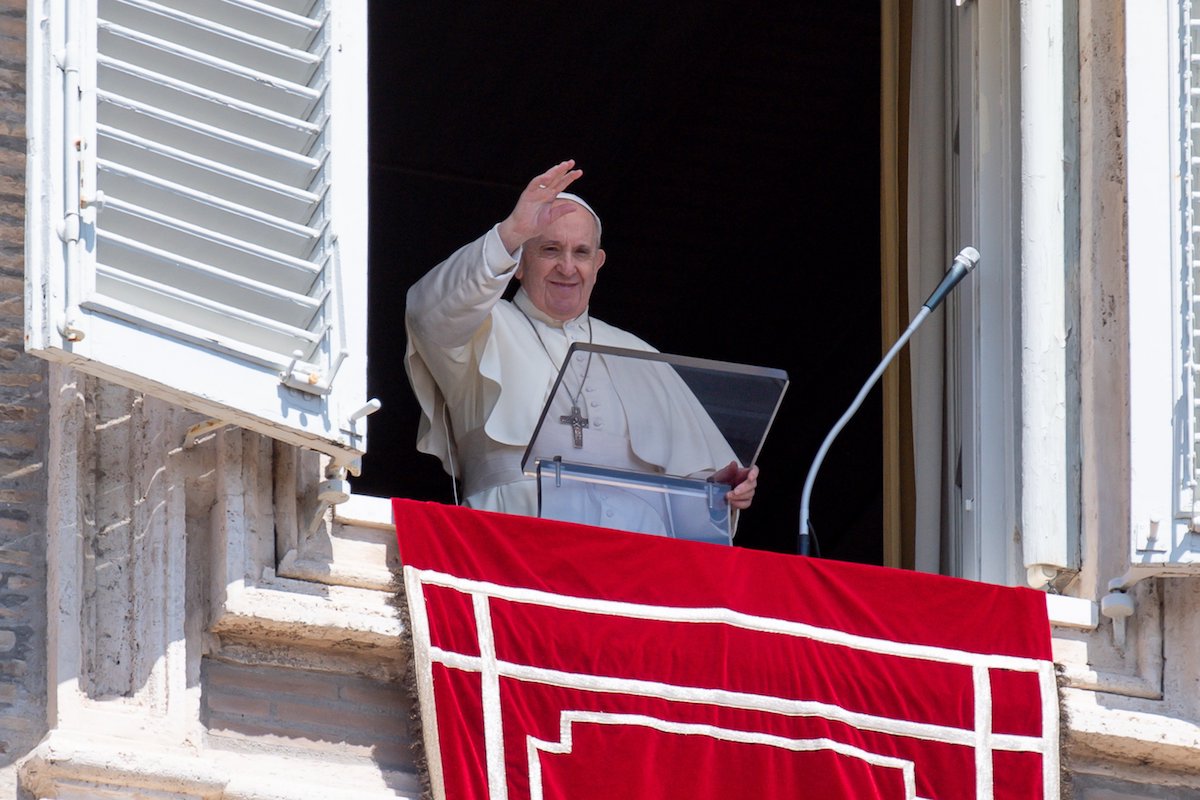VATICAN CITY (CNS) — Jesus is the good shepherd who knows, loves and defends his sheep, embracing everyone without exception, Pope Francis said.
“For this is the Father’s will — that no one should be lost. Christ’s love is not selective; it embraces everyone,” the pope said before reciting the “Regina Coeli” prayer April 25 with visitors in St. Peter’s Square.
Focusing on the day’s Gospel reading (Jn 10:11-18) presenting Jesus as the good shepherd, the pope said the opposite of the good shepherd is the “mercenary” — the hired hand who does not care about the flock “because they are not his.”
“He does the job only for pay and is not concerned about defending them; when a wolf arrives, he flees and abandons them,” the pope said.
Jesus, the true shepherd, “defends us always and saves us from so many difficult situations, dangerous situations through the light of his word and the strength of his presence that we always experience if we want to listen, every day.”
But even more beautiful, he said, is Jesus knows each and every one, “we are not a ‘mass,’ a ‘multitude’ for him, no. We are unique individuals, each with his or her own story” and with his or her own value.
Knowing each person’s strengths and defects, Jesus “is always ready to care for us, to heal the wounds of our errors with the abundance of his mercy,” he added.
It was out of love for his sheep that he gave his life for them, and it is God’s will “that no one should be lost,” the pope said.
Jesus says in the Gospel that he has “other sheep that do not belong to this fold. These also I must lead, and they will hear my voice, and there will be one flock, one shepherd.”
The pope said these words testify to Jesus’ universal concern: “he is everyone’s shepherd” and wants everyone to encounter God and receive the father’s love.
Many people, even the majority of them, go to church on special occasions or never, the pope said. “But this does not mean they are not God’s children; the father entrusts everyone to Jesus the good shepherd, and he gave his life for everyone.”






